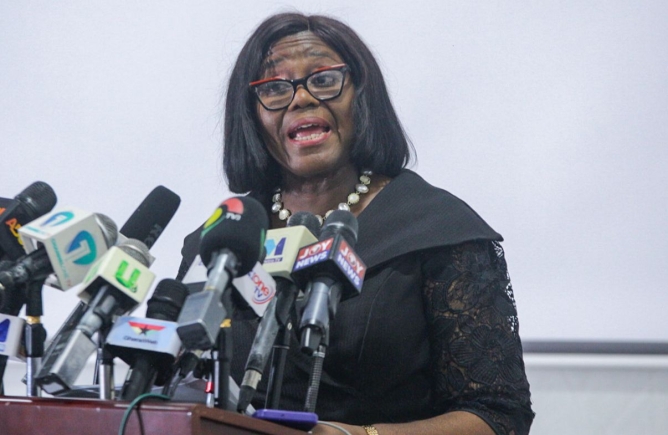
9 key takeaways from suspended Chief Justice Torkornoo’s press conference
Suspended Chief Justice Gertrude Araba Esaaba Sackey Torkornoo made a bold statement to the nation on June 25, 2025, addressing her ongoing removal process and raising serious concerns about Ghana’s judicial system. Here are 9 crucial points from her address:
1. Historic but flawed process
Justice Torkornoo described her removal proceedings as unprecedented in Ghana’s 68-year history but accused the committee of violating constitutional and legal standards. "Every step breaks every rule on how justice is delivered," she said.
2. Threat to judicial independence
She warned that the process sets a dangerous precedent, affecting not just her but all judges and heads of constitutional bodies. "If this model can be tried on the Chief Justice, it can be repeated with everyone," she stated.
3. Supreme Court rejected public hearing
The Chief Justice claimed that her application for open proceedings was dismissed, leaving the hearings shrouded in secrecy. She argued that transparency was essential to prevent abuse of power.
4. Held at Adu Lodge – A symbol of fear
She questioned the choice of Adu Lodge as the hearing venue, linking it to the 1981 murder of judges, including her uncle. "Was it chosen to make me feel insecure? I think so," she said.
5. Denied access to petitions
Justice Torkornoo accused the committee of withholding copies of the petitions against her, preventing her from preparing a proper defence. "They refuse to give me the documents forming the basis of the hearing," she stated.
6. Witnesses subpoenaed illegally
She challenged the legality of the committee issuing subpoenas, arguing it lacked statutory authority to compel witnesses.
7. Baseless allegations
She dismissed the petitions as unfounded, providing evidence to refute claims of misconduct, including travel expenses and judicial decisions. "Not one allegation is remotely true," she insisted.
8. No resignation despite pressure
The Chief Justice firmly rejected calls to resign, stating that stepping down would legitimise an unjust process. "Resigning is not an option—it would mean accepting this flawed system," she declared.
9. Conflict of interest in Committee
She raised concerns about Justice Pwamang chairing the proceedings, given his past rulings in favour of one petitioner, Daniel Ofori.
